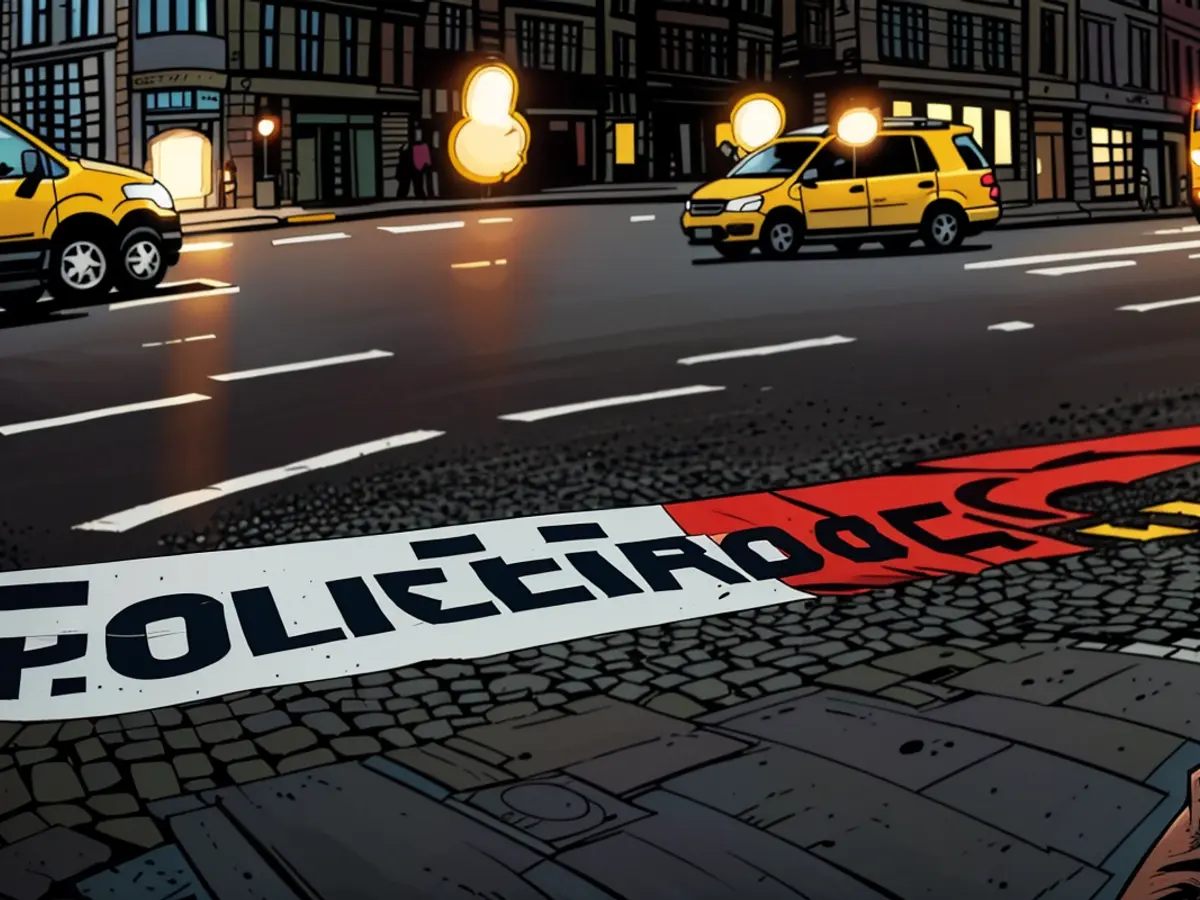- The proposed safety measures by the union are considered insufficient.
The alliance views the Union's proposals to combat Islamic terrorism and illegal immigration as inadequate. Chancellor Scholz and Interior Minister Faeser, both from the SPD, justified the measures following the deadly knife attack in Solingen that left three deceased and eight injured. Faeser suggested additional actions after talks with the Union and the states, with a meeting scheduled for Tuesday. Meanwhile, the Solingen attack investigation is gaining traction in parliament.
According to the coalition's proposition, benefits for migrants whose responsible European country has agreed to accept them would be reduced. Criminals should be more easily deported. Faeser announced on ARD's "Tagesthemen" that deportations of criminals and perpetrators to Syria and Afghanistan would soon commence. Additionally, there should be a ban on carrying knives on long-distance buses and trains, during folk festivals, and other large events. Law enforcement agencies should be permitted to compare biometric images publicly with photos of suspects or wanted individuals in the fight against Islamism.
Scholz emphasizes urgency, Faeser open to more
Scholz advocates for immediate implementation of the measures. During a citizen dialogue in Brandenburg's Seelow, he stated, "It's great that it happened so quickly, so accurately, and I'm pleased that these measures could be presented today." They should now be implemented quickly.
Faeser described the coalition's plan as a "strong reaction" to the attack in ARD. She anticipates agreement with the Union. It is crucial that all state levels "stand together strongly" in this matter. She accepts and takes seriously offers of talks. She will discuss additional measures openly. "I won't rule out certain things," Faeser said when asked about potential additional measures.
Union believes coalition's plan insufficient
CDU General Secretary Carsten Linnemann's assessment of the coalition's plan was, "There's nothing wrong with the document, but unfortunately, it is not the necessary measures." Looking ahead to negotiations with the government, he emphasized in the "Rheinische Post" that the topics of border rejections, implementation of the Dublin principle, and consistent deportations must be addressed during the Tuesday meeting.
CDU/CSU parliamentary group's first parliamentary business manager, Thorsten Frei (CDU), also mentioned in Bild that the coalition's proposals fall short of "a fundamental shift in migration policy and internal security." CSU group leader Alexander Dobrindt announced a thorough review of the coalition's package of measures. "Clearly, things are now possible that the coalition has always rejected," said the CSU politician to the German Press Agency.
NRW Interior Minister Herbert Reul (CDU) calls for unity with the SPD. "This is not a technical problem, but the question of whether we can achieve a consensus between the major parties to change the law more," said Reul to the TV station Phoenix. In the past, one often opposed each other. "Whenever one made a proposal for immigration, others tripped over him." These times should be in the past considering the current security situation.
The Liberals anticipate constructive cooperation from the Union. "What's important now is that democratic parties at all state levels work closely together," said FDP parliamentary group leader Christian Dürr to dpa. "Without the states, it won't work. Therefore, I appeal to the CDU and CSU to join forces with us and constructively contribute to the swift implementation of the security package," said Dürr.
Greens with approval and partial skepticism
Green interior expert Lamya Kaddor praised the paper in the "Tagesspiegel" as evidence that the coalition remains capable of action in matters of internal security, even in times of significant internal and external threats. Green parliamentary group leader Britta Haßelmann, however, expressed skepticism about the plan to reduce benefits for asylum seekers for whom another European state is responsible, which has agreed to take them back, in an interview with the Bavarian media group.
Bundestag Interior Committee and NRW Landtag to discuss attack
Almost a week after the attack in Solingen, the federal government and the investigating general public prosecutor will report in the Bundestag's Interior Committee. Union parliamentary vice-president Andrea Lindholz (CSU) told dpa, "Ms. Faeser must not leave any questions unanswered tomorrow and must explain in detail which consequences she wants to draw from the attack." The causes of the terrible terrorist act must be fully clarified.
Green parliamentary vice-president Konstantin von Notz told dpa that many backgrounds of the horrifying act are still unclear. They must now be extensively and quickly clarified. Security policy deficits must finally be politically addressed decisively, warned von Notz, who is also the chairman of the Bundestag's secret service oversight committee.
Steinmeier attends memorial service
In North Rhine-Westphalia, Minister President Hendrik Wüst (CDU) will inform the Landtag in a special session in the morning about the current findings on the attack. At the beginning of the plenary session, the members of parliament will observe a moment of silence to remember the victims of the attack.
During the incident, an individual brutally ended the lives of three attendees at the local city festival in Solingen, leaving eight others wounded. An accused, a 26-year-old Syrian male, who entered Germany as a refugee via Bulgaria, is currently under suspicion for the heinous act. A memorial event is set for Solingen on Sunday, attracting the presence of Federal President Frank-Walter Steinmeier. He intends to deliver a speech and subsequently place a wreath at the grim location of the tragedy, commemorating the victims in a moment of solemn silence.
Faeser discussed the coalition's plans, including the resumption of deportations, on ARD's "Tagesthemen." The SPD and the Union will hold further talks on this matter.
The CDU questions the effectiveness of the coalition's proposed measures, with General Secretary Carsten Linnemann stating they fall short of a significant shift in migration policy.








